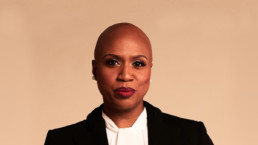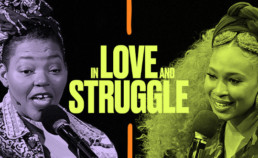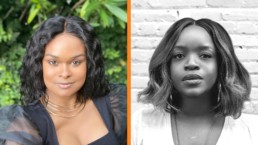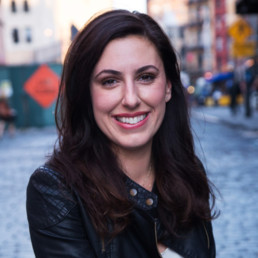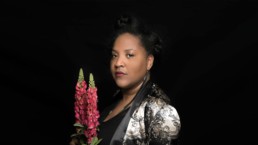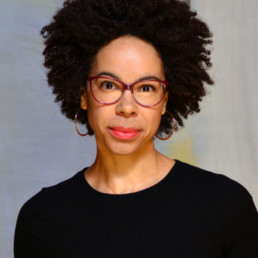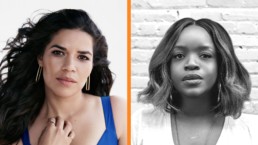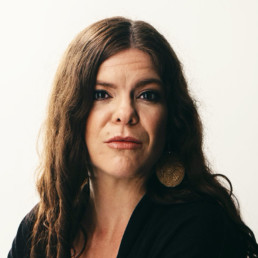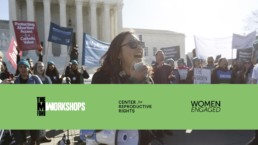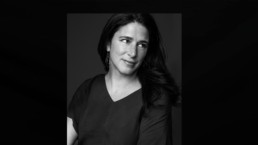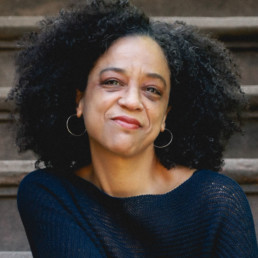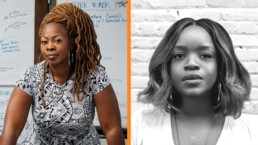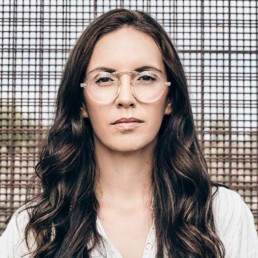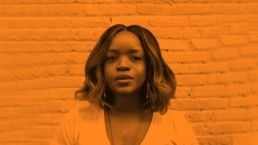Rep. Ayanna Pressley: “The Squad is big, y’all”
NEWSLETTER
The U.S. passed the grim toll of over 500,000 deaths from COVID-19 this week—as you’ve likely read, that’s equivalent to the population of Atlanta. And even as relief comes into view with vaccine distribution, data is showing that white people are getting vaccinated at much higher rates than Black and Latinx people.
How can we prevent the vaccine rollout from becoming yet another way systemic racism literally kills Black and brown people? Representative Ayanna Pressley (D-MA) has a plan.
This week on UNDISTRACTED, Brittany Packnett Cunningham talks with the Congresswoman about “vaccine redlining” (and her plan to fix it), the Capitol attack, her policy priorities and why we’re all welcome on “The Squad.” (There’s no membership fee; you just have to use your voice.)
Rep. Pressley represents Massachusetts’ 7th Congressional District and is the first woman of color elected to Congress from the state. Now in her second term, she’s sworn to keep making sure that “those closest to the pain are closest to the power.”
Packnett Cunningham and Rep. Pressley covered so much ground in their conversation—from the need to erase student debt to how the Congresswoman feels about going wig-less these days. Highlights from their packed conversation:
- Rep. Pressley on the Capitol attack: “I think the image that has haunted me the most is that of the all Black custodial staff cleaning up the mess left behind by this violent white supremacist mob. Of course they—and all of the Capitol staff from custodians to food service workers to our aides to United States Capitol Police—all experienced their own fair share of trauma that day. But this was both a literal representation and a metaphor for what Black folks and the most marginalized have been doing for generations—and that is cleaning up the mess left by a violent white supremacist mob.”
- Rep. Pressley on “The Squad” 2.0: “How do I define ‘The Squad?’ I define it as anyone doing the work of building a more equitable and just society. So that is certainly not limited to any members of Congress. The Squad is big, y’all. It is a multi-racial, multi-generational movement of the most marginalized who have come together fueled by issues-based activism. And I think that movement has proven the old adage that ‘the power of the people has always been greater than the people in power.’ And it is because that squad is big and growing that democracy is in fact breathing another day.”
- Rep. Pressley on vaccine inequity: “We knew anecdotally how the virus would play out, given the comorbidities of structural racism and unequal access to healthcare. And so early on, I was banging the drum and advocating and legislating for the equitable collection of data. Myself and Senator Warren introduced a bill that would require the collection of racial demographic data so far as coronavirus infections, hospitalizations and death rates. And again, we knew anecdotally what communities would be hardest hit, but I believe that that which gets measured, gets done. So we needed the data to inform and drive the marshaling of resources…Now we’re continuing the same drum beat when it comes to vaccine recipients to guard against what I call ‘vaccine redlining.’”
- Rep. Pressley on her alopecia reveal one year later: “It’s still a struggle. Every day I think I make progress in my own healing and my own self-acceptance, but the reason why it hasn’t been easy is because it defies, disrupts and challenges people’s conventional narratives and beauty standards for what is professional, what is appropriate, what is feminine, what is pretty. And so just how I enter a room is disruptive for many, but increasingly so, when I see myself, my reflection back, I just accept that this is me. And in fact, sometimes people have said…‘Why don’t you just wear a wig?’”“You never say never, but now when I put a wig on, it just doesn’t feel in alignment with where I’m at and who I am. It feels like a costume. And I feel resentful that I should have to put on one more piece of armor in order to safely negotiate the world and to navigate spaces.”
Listen on Apple Podcasts, Spotify, Stitcher or wherever you get your podcasts.
Remember the energy and collective joy of live performance? This weekend we’re revisiting The Meteor’s celebration of the experiences of Black women: IN LOVE AND STRUGGLE. Performed live in New York City in February 2020 at the bridge between Black History Month and Women’s History Month, it has special resonance one year later—after a global pandemic, an uprising against oppression and waves of attempted voter suppression.
Curated by Rebecca Carroll, directed and produced by Monica L. Williams and with creative advisor Kamilah Forbes, it featured performances by Mahogany L. Browne, Alicia Garza, Professor Anita Hill, Brittany Packnett Cunningham, Mumu Fresh, Sasheer Zamata, Sarah Jones, Jodie Patterson and more. Head over to Instagram to see our kickoff video, join our celebration on Instagram all weekend and listen to the complete show on Audible.
Raquel Willis on the future of feminism
NEWSLETTER
President Biden may have signed new protections for LGBTQ people, but there’s anti-trans legislation being proposed in over a dozen states—and trans and gender-nonconforming people still face dangerous realities everyday.
What will it take for trans women—especially Black trans women, who are most at risk for violence—to live safe, free lives? This week on UNDISTRACTED, Brittany Packnett Cunningham sits down with activist and writer Raquel Willis about the struggle for transgender rights in America, and the importance of leadership opportunities for Black trans women.
Willis, one of the organizers of the June 2020 March for Black Trans Lives in New York, has worked for the Transgender Law Center, the Ms. Foundation and OUT magazine.
Packnett Cunningham and Willis dig into her work on the Trans Obituaries Project, spiritual trans ancestry and her “expansive new vision of feminism.” Highlights include:
- Willis on centering the humanity (and not just the dangers) of the Black trans experience: “A lot of times in our society, we don’t consider that trans people have lives, have loved ones, have family, have partners, have parents that want to make sure that we’re safe. So we’ve got to consider the humanity of the Black trans experience as well.”
- Willis on Black trans power: “Black trans people often amongst ourselves feel our power, but don’t necessarily really feel like other people see our power, see our potential for crafting a world of liberation.”
- Willis on an “expansive new vision of feminism:” “The new vision, particularly in the feminist space, is reckoning with our history. So if we can consider that some of those early [feminists] were just white supremacist as hell, then we also need to be able to consider that there has often been a trans misogynistic underpinning to larger feminist fights…It is a problem that we see public figures like J.K. Rowling, or even to a lesser extent, a Chimamanda Adichie, who espouse misinformation about trans women and try to pit trans women against cis women. Yes, trans experiences and cis experiences often are very different…That does not mean that our experiences as women are less valid or more valid than any other group of women.”
- Willis on the Black trans ancestors that guide her: “One of the most beautiful things about being trans or being queer in general is considering ancestry from a more expansive lens…There is a spiritual lineage that connects me to other queer and trans folks throughout history. I had to seek out their stories…the Marsha P. Johnsons, the Sylvia Riveras, the Crystal LaBeijas, the Mary Jones and Frances Thompsons—all the way back in the 1800s who are documented. I connect with them and I call on their ancestral power to get me through today because…there have been Black trans and gender-nonconforming folks throughout time.”
Listen on Apple Podcasts, Spotify, Stitcher or wherever you get your podcasts.
WHAT OUR COLLECTIVE IS INTO RIGHT NOW
The Meteor is guided by our collective; here’s what one founding member is up to this week.
I’M WATCHING I’m rewatching every apocalyptic movie and television show I can think of. (Think: The Leftovers, Contagion, etc.) Somehow it makes the current dystopia seem a little bit better when you can remember: hey, at least it’s not zombies.
I’M READING I just started Anna North’s new book Outlawed and it’s just terrific. The only two words that you need to convince you: Feminist. Western.
I’M DOING MORE Giving myself a break. When Covid-19 hit, I was determined to be as productive as possible, even if I was home—nearly a year in, I’ve thrown that bullshit out the window. We’re all doing our best, there’s no reason to make life even harder by telling myself that I need to work even more.
I’M DOING LESS Worrying about my daughter’s screen time. In the same spirit of giving us all a break, I’m not going to stress over whether or not my kid is playing Minecraft or chatting with her friends on FaceTime. Whatever it takes to make her feel connected, I’m all for.
I’M GETTING MY JOY FROM Walking! It may be freezing in New York but I’m trying to take a walk every day to get myself out of the apartment and to do some much-needed socializing. I’ve challenged myself to take at least one walk a week with a friend that I haven’t seen in a while and it’s been the best.
Jessica Valenti is a columnist and the author of six books, including Sex Object: A Memoir, a New York Times bestseller. She also co-edited the anthology Yes Means Yes! and founded one of the first feminist blogs, Feministing.com. Subscribe to her newsletter here.
The radical act of rest
NEWSLETTER
Nap Ministry founder Tricia Hersey says rest is an essential part of racial justice work
This week feels like go time. “There is so much to get done in this new administration,” Brittany Packnett Cunningham says in this week’s episode of UNDISTRACTED. “Let’s get moving. Everyone is talking about what we need to get done in the first hundred days.”
So it might seem counterintuitive to talk about slowing down. But podcast guest Tricia Hersey, founder of the Nap Ministry, argues that’s exactly what we should be focusing on. Hersey—who is also a poet, performance artist, activist and ordained minister (she’s known as the “Nap Bishop”)—says rest can be a form of radical resistance and healing, and that it’s essential if we want to dream the big dreams that will help construct a better future.
You won’t want to miss Hersey’s smart advice which, she will tell you, has nothing to do with “wellness,” and everything with creating a more just world.
In their conversation, Packnett Cunningham and Hersey break it down further. Some of our favorite parts:
- Hersey on the ways in which rest is radical: “All of culture is in collaboration for us not to rest. Every single part of our culture—from academia, to public schools, to the churches—everything is in collaboration for us to continue to use our bodies as a tool for their production. And so to understand how truly bamboozled you have been, it’s going to take some grieving around that. It’s going to take some understanding that grind culture is violence. And how do you want to align with that? Do you want to align with white supremacy and capitalism—and be exhausting your body? Or do you want to disrupt and dismantle it? And rest can be that way for us to be able to push back against it.”
- Hersey on why it’s so important to find time for rest—even now: “It really is a time to rest. It always has been, but I think rest needs to become centered, become seen as a social justice and racial justice issue. It’s a public health issue. And so to think that we can continue on from an exhausted disconnected state, because really when we aren’t resting, it’s bigger than just doing an all-nighter and not feeling well the next day. We really are disconnecting from our body. The more that we do that, the more we’re able to not have empathy and the more we’re able to not be able to give care, and without care in the world, none of us would be free.”
- Hersey on how to build space for rest: “My grandmother Ora, who was the muse for this work, she was a Jim Crow survivor…She worked two jobs, sometimes three jobs, raising nine children…She sat every single day on her couch with her eyes closed and she rested her eyes. And [when we asked about it], she was like, ‘I’m not asleep. You know, every shut-eye ain’t sleep. I’m resting my eyes so I can get a word—so I can hear what the universe wants to tell me.’…I think creating a space and re-imagining rest for yourself is really the work…I will tell people it may look like closing your eyes for five minutes in your car while you’re in a parking lot. It may be before you get out of the shower in the morning…taking two minutes for yourself.”
Listen on Apple Podcasts, Spotify, Stitcher or wherever you get your podcasts.
WHAT OUR COLLECTIVE IS INTO RIGHT NOW
The Meteor is guided by our collective; here’s what founding member Dr. Ayana Elizabeth Johnson is up to this week.
I’M LISTENING TO My mom. She is in a very reflective phase of life and I’m learning so much from her and about her. It’s such a gift. And she really is right about most everything. This tumultuous moment of transition is a moment to listen extra hard to our elders.
I’M READING Big Friendship by Aminatou Sow and Ann Friedman. It’s so good. And when I finished the last page I was teary and billowing with gratitude (and sending some very cheesy texts) thinking of the incredible BIG friendships that got me through the last year. 2020 was a teacher in many ways, and one of the things it insisted I (re)learn was the immense value of friendships—the kind where you drop everything for each other without a thought, whether to mourn, strategize or celebrate. Love your people—at once fiercely and gently.
I’M FOLLOWING The Biden Administration’s climate work. They released some big plans during the campaign, and are off to a good start by rejoining the UN Paris Agreement on climate, revoking the permit for the Keystone XL pipeline, and appointing great experts to key policy positions. But it’s going to be crucial for the public to hold them to their promises— critiquing, encouraging and cheering.
I’M DOING MORE Getting into bed early with a book. And sometimes waking up and reading a book before doing anything else. It feels like the most amazing indulgence. Highly recommend.
I’M DOING LESS Answering emails. I set up a very robust auto-reply that starts with “Turns out it is no longer possible to both focus on my own projects and keep up with the deluge of emails. If I don’t reply to you, please know that you are in excellent company.” While many people want to imagine that it can’t possibly apply to them, it does!
Dr. Ayana Elizabeth Johnson is a marine biologist and policy expert who builds community around climate solutions. Co-founder of the nonprofits Urban Ocean Lab and The All We Can Save Project, she co-hosts the podcast “How to Save a Planet.”
Special: Brittany Packnett Cunningham & America Ferrera
NEWSLETTER
Two of our favorite thinkers unpack the week’s news
It was a week of whiplash: the jubilation of victories in Georgia followed by the toxicity of a white-power insurrection at the Capitol. So if you’re trying to process it all—trying to figure out how much joy we can feel in the face of all this un-joyous madness—well, so are we. For guidance, we turned to two of the most inspiring activists we know, Brittany Packnett Cunningham and America Ferrera.
We have two episodes for you on UNDISTRACTED this week: first up, Packnett Cunningham’s response to the attacks on the Capitol, and then a celebration of the historic Georgia wins with actress and activist Ferrera.
So while Wednesday’s darkness lingers, listen in as these two smart women shed a little light.
Packnett Cunningham and Ferrera cover a lot of ground in their discussion—from cultural revolutions to multicultural coalitions. Together with other Latinx leaders, Ferrera recently launched She Se Puede, a digital platform to empower Latina voters. You won’t want to miss their conversation, including:
- America Ferrera on what politicians need to understand about the Latinx community: “Eva Longoria, one of my co-founders [of She Se Puede], and I would just laugh at how we could set our clocks by our phones ringing off the hook like a month before an election…’Can you come out and get voters out?’ Dude, parading Ugly Betty in the last three weeks of an election is not a strategy. It’s a failing strategy! Please spend more time thinking about how you’re going to empower this growing electorate.”“You can’t just show up and tell people that their votes matter. You have to tell them that their lives matter. That everything about their lives matter: that their dreams, that their hopes, that their aspirations, their health, their mental health, their joy. This is what I’m saying: We’re so deeply inspired by how Black women and the Black community have set this model for other communities of color. And it can’t just be politics in one bucket and everything else in the other.”
- Ferrera on how the Black and brown communities can change the world—together: “I would love nothing more than for the conversation of Black and brown unity to take center stage… I don’t think anything scares white supremacy more than Black and brown people coming together.”
- Brittany Packnett Cunningham on taking time to process the events of this week: “I know Congress went on to finish the session they had started and God bless ‘em, but there was a noose erected on the side of the U.S. Capitol, a building built by enslaved Africans in America. So I need to catch my breath and get my footing. And I figured maybe you do, too.”
- Ferrera on the inspiration for She Se Puede’s name, civil rights leader Dolores Huerta’s famous rallying cry (“¡Sí, Se Puede!”) “We’ve all been deeply inspired by Dolores, who is 90 now and just unstoppable…she exhausts me! The amount of rallies and Zoom meetings that she’s like, Can you do just one more?…She’s inspired so many of us to keep showing up and to do the work. And so…of course we would want her blessing [to use the name] and she gave it to us wholeheartedly. And she’s our madrina—she’s a godmother to us—and we’re just so lucky to still have her living in the flesh, being such an example of somebody who has never, ever expected anyone from the outside to come in and empower our community…. I think that’s the realization here is no one is more invested in the empowerment of our community than we are.”
- Packnett Cunningham on the idea that people of color “saved” the elections: “I always find days like today a lil’ funny when America—the country, not the person—is looking at the results of an election and saying, ‘Oh, Black people saved us again. People of color saved us!’ Well, contrary to popular belief, we don’t live our lives solely in service of dominant culture. We saved ourselves and like America said—the person this time—we don’t wait for anybody to come in and save us….And, really, that’s the funny thing about justice, isn’t it? When Black people win, we all win. When the most oppressed win, everybody benefits.”
LISTEN NOW ON: Apple Podcasts /Spotify /Stitcher
Justice for Mothers in 2021: Come learn what’s ahead
NEWSLETTER
Sign up now for our workshop on Wednesday
The U.S. has the highest maternal death rate in the developed world, and Black and Indigenous moms are hit the hardest, dying at rates that are far higher than their white counterparts. The majority of these deaths are preventable—which is both a devastating commentary on our system, and, say advocates, a reason to make this issue a national priority once and for all.
That’s exactly what the maternal-health and reproductive-justice movements are determined to do in 2021. Want to find out more, and learn how to help? Come join us tomorrow night for the second workshop in our nonprofit affiliate The Meteor Fund’s series—this one held in partnership with the Center for Reproductive Rights and Changing Woman Initiative.
MATERNAL HEALTH: JUSTICE FOR MOTHERS IN 2021
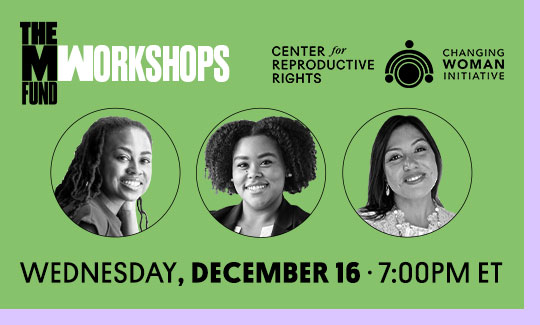
Moderated by Jamia Wilson (Vice President and Executive Editor at Random House and founding member of The Meteor Fund advisory board) with speakers Breana Lipscomb of the Center for Reproductive Rights and Marinah V. Farrell of the Changing Woman Initiative, the conversation will get into topics like:
-
- Why is the maternal mortality rate rising in this country?
- Which solutions have been proven to help?
- How we can all support the movement at a community, state and national level?
SIGN UP NOW FOR THIS (FREE!) EVENT >
WHAT OUR COLLECTIVE IS INTO RIGHT NOW
The Meteor is guided by our collective; here’s what one founding member is up to this week!
Osiyo! My name is Mary Kathryn Nagle. I am a citizen of the Cherokee Nation (and the United States) and a lawyer fighting for justice on behalf of Native families whose loved ones have been murdered, but whose murders have never been taken seriously. I am also a playwright, writing powerful narratives about powerful Native women!
I’M WATCHING The Social Dilemma, since we can’t analyze the current political division in the United States without a deep understanding of how Americans get their information today, which The Social Dilemma deftly explains.
I’M READING A Sacred Path: The Way of the Muscogee Creeks, by Jean and Joy Chaudhuri.
I’M FOLLOWING IllumiNatives on Twitter. They are doing critical work to combat the invisibility of Native people in Hollywood, Washington D.C. and all facets of American life.
I’M DOING MORE playwriting.
I’M DOING LESS dancing, but I seriously need to do more!
I’M GETTING MY JOY FROM watching the first snowflakes fall from the sky.
THE LATEST ON UNDISTRACTED
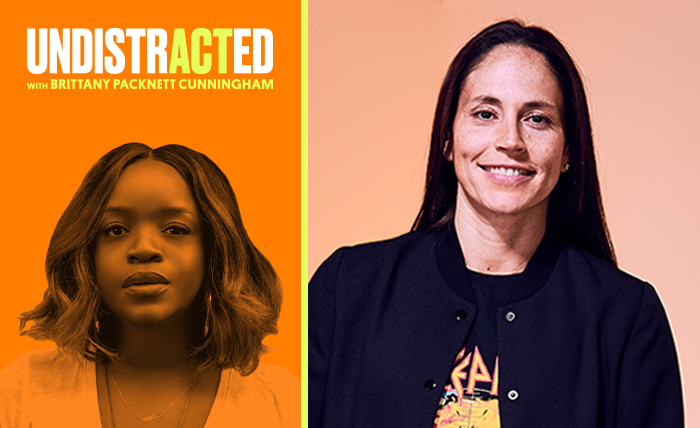
“The WNBA could play a role in flipping a seat to blue and that would be bigger than the championship.”
—Sue Bird, four-time WNBA champion
On the most recent episode of UNDISTRACTED, Brittany Packnett Cunningham sits down with WNBA champion Sue Bird, who says she tried to “stick to sports,” as women athletes are so often told to do, but that sports—and especially women’s sports—end up being inherently political. Don’t miss their conversation, which covers everything from the Georgia Senate runoffs to Bird’s own story of finding her voice.
Listen on Apple Podcasts, Spotify, Stitcher or wherever you get your podcasts.
Reproductive Rights and Justice in 2021: Come learn what’s ahead
NEWSLETTER
Join our nonprofit affiliate The Meteor Fund for two upcoming workshops
The election is behind us—but abortion access, reproductive justice and maternal health are still on the line, and will be front and center in 2021. With a record number of recent conservative appointments to the federal judiciary and the most conservative Supreme Court we’ve seen in years, plus a maternal health crisis that hits Black and brown women hardest, there are critical priorities for the year ahead. To understand the issues and learn how you can get involved, join our nonprofit affiliate The Meteor Fund, along with the Center for Reproductive Rights, Women Engaged, and Changing Woman Initiative for our workshop series. You’ll hear from legal experts and grassroots organizers about what we all need to know now.
REPRODUCTIVE RIGHTS AND JUSTICE: WHAT’S AHEAD IN 2021
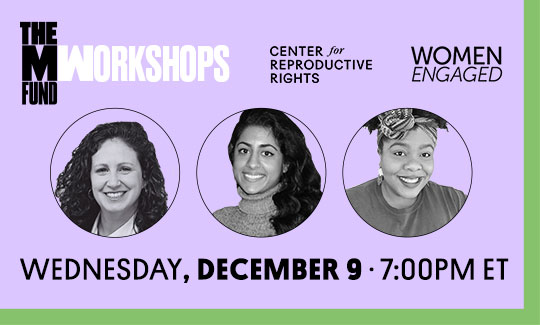
In The Meteor Fund’s first workshop, hosted by Dahlia Lithwick of Slate with Fajer Saeed Ebrahim of the Center for Reproductive Rights, and Michelle Wilson of Women Engaged, we’ll cover topics like:
-
- What’s ahead in light of the new Supreme Court and the current political climate
- The widespread state-level damage to abortion access—and possible solutions
- Proposed legislation that would advance women’s reproductive rights and justice
- What’s ahead in light of the new Supreme Court and the current political climate
Most of all, we’ll learn what we can each do to make a difference. No subject knowledge or organizing experience necessary—everyone is welcome!
MATERNAL HEALTH: JUSTICE FOR MOTHERS IN

The U.S. has the highest maternal death rate in the developed world—and Black moms are hit the hardest, dying at 3 to 4 times the rate of their white counterparts. The second workshop in The Meteor Fund’s series—this one held in partnership with the Center for Reproductive Rights and Changing Woman Initiative—will focus on the deepening maternal health crisis in the United States.
Hosted by Jamia Wilson (Random House and founding member of The Meteor Fund advisory board) with Breana Lipscomb of the Center for Reproductive Rights and Marinah V. Farrell of the Changing Woman Initiative, the conversation will cover topics such as:
-
- Structural racism in our maternal health care system
- Proposed federal and state policy solutions aimed at advancing reproductive justice
- How you can get involved at a community, state and national level
- Structural racism in our maternal health care system
Accessibility statement: The Meteor Fund welcomes individuals with disabilities to participate in its programs and activities. If you would like to request accommodations or have questions, please contact [email protected] in advance of your participation. Please note that we will make every effort to secure services, but that services are subject to availability.
The Meteor Fund is an affiliated 501(c)(3) project of The Meteor and is fiscally sponsored by New Venture Fund, a 501(c)(3) public charity.
Rebecca Traister on why we’re afraid of full-grown women
NEWSLETTER
Brittany Packnett Cunningham speaks with the New York magazine journalist on this week’s episode of UNDISTRACTED
This week is heavy on contradiction. With news of a COVID-19 vaccine on the horizon, we’re facing a record surge in cases. As pie photos flood Instagram, food insecurity across the country is spiking, with women and children, particularly BIPOC families, hit hardest. And as we continue to celebrate our first-ever female Vice President-elect, the U.S. is still, as Rebecca Traister, this week’s guest on UNDISTRACTED puts it, “deeply uncomfortable with women in positions of power.” Trying to make sense of it all? You won’t want to miss this episode.
THIS WEEK ON UNDISTRACTED
On the latest episode of UNDISTRACTED, Brittany Packnett Cunningham sits down with journalist (and founding member of The Meteor) Rebecca Traister.
In their conversation, the writer at large for New York magazine and author of three books, including Good and Mad: The Revolutionary Power of Women’s Anger, explains how young girls are being used in political messaging, why we’re so afraid of full-grown women and what to do now that the election is over.
A few highlights:
- On Kamala Harris’ victory: “Kamala Harris’ election to the vice presidency is historic and joyful and history-making. It is also true that Joe Biden won the nomination for the presidency over six women—including Kamala Harris. And we can’t lose sight of that.”
- On how we don’t give women leaders room to be human: “You can ideologically oppose John McCain morning till night and still say, ‘Yeah, but he was a war hero, and he did that good thing when he gave the thumbs down.’ We can integrate our mixed feelings about white men. We cannot do that with women. We are really bad at offering full-grown women the generosity of a view of them as full human beings.”
- On why we need to stay engaged right now: “If all these predictions of a landslide had been true—if the presidency, the House, the Senate, were all in the hands of Democrats, it was still going to be a massive challenge to start to do the corrective work to ‘unbreak’ some of the institutions that are in hard right-wing control right now. That was still going to be a really hard project.”
Listen on Apple Podcasts, Spotify, Stitcher or wherever you get your podcasts.
WHAT OUR COLLECTIVE IS INTO RIGHT NOW
The Meteor is guided by our collective; here’s what one founding member is up to this week!
WATCHING The Crown on Netflix—but only the Princess Diana episodes. How she continues to be such a beguiling figure I don’t quite know, but I think a lot of it has to do with the way she went through her young life wearing her empathy on the outside of her body.
LISTENING a Spotify playlist called “Mom” that my 15-year-old son made me. It has 73 songs, and it’s a mix of a few of my personal OG faves (Biggie’s “Juicy,” Jay-Z’s “Heart of the City,” Kendrick’s “Swimming Pools”), some of the stuff we both like (SZA’s “Love Galore,” Frank Ocean’s “Swim Good”) and then some of the newer stuff he wants me to connect with (J. Cole, 21 Savage).
READING Lady Sings the Blues by Billie Holiday with William Dufty for a project I’m working on right now, and I’m just so bowled over by her strength of spirit, sense of self, playfulness with language and just her sheer fortitude as a Black woman living and working in 1950s America—when she wasn’t allowed to use public bathrooms while touring the country and giving audiences the gift of her voice.
FOLLOWING Duro Olowu. His IG feed is straight fire—it’s art, it’s elegance, it’s fashion, it’s an entire mood.
DOING MORE OF regular Zoom cocktails and FaceTime with girlfriends. I used to be that gal who was like, “Yo, sometimes we don’t need to see each other; we can just have a nice catch-up, tea-spilling chat on the phone.” But I miss seeing my girls in person so much, and have learned to just get easy with the fact that they’ve all done seen me looking my worst anyway, so whatever.
DOING LESS OF waiting on anyone or anything.
GETTING MY JOY FROM making good work.
Rebecca Carroll is a writer, cultural critic, host of the podcast “Come Through with Rebecca Carroll” (WNYC Studios) and The Meteor’s Editor-at-Large. Her forthcoming memoir, Surviving the White Gaze, has been optioned by MGM/TV and Killer Films, with Rebecca attached to adapt for a limited scripted series.
How Black women won the election
NEWSLETTER
Host Brittany Packnett Cunningham speaks with LaTosha Brown, one of the organizers who made it happen
America has emerged from Election Week, and two things are clear: One, we saw massive, record, historic turnout with more people voting in this election than in any in over 100 years. (You did that.) And two, the victory for the Biden-Harris ticket—a ticket that breaks a 231-year run of white male Vice Presidents—was won in part through the advocacy, and the voting, of BIPOC women. In the South, Black-woman-led organizations helped make Georgia a swing state—one of the reasons Vice President-elect Kamala Harris (that sounds nice, doesn’t it?) called Black women the “backbone of our democracy.”
THIS WEEK ON UNDISTRACTED
On this week’s episode of UNDISTRACTED, Brittany Packnett Cunningham sits down with one of the women who made the Biden-Harris victory possible: LaTosha Brown, co-founder of the Black Voters Matter Fund, which works to increase Black voter turnout in the U.S.
Brown, a Georgia native, tells Packnett Cunningham why she’s expecting some “poetic justice” in the state’s two Senate run-off races come January.
- Some of the other not-to-miss points in their conversation:
Brown on why Black women show up: “I really believe that we sit at this unique intersection of both race and gender, and we’ve had to navigate those things ever since we came to the shores of this nation.” - Brown on VP-elect Harris: “She’s put a crack in the ceiling—and whenever there is a crack in glass, the light enters the room…I am hoping that we will start seeing more progressive women take the reins of leadership and really be able to lead this country in a new direction.”
- Brown on what comes next: “This can’t be just a transactional moment about acknowledging what Black women have done…I hope that this administration is listening. I hope that President-elect Biden actually recognizes that his role…is to serve the people. That his agenda is actually the people’s agenda.”
Listen on Apple Podcasts, Spotify, Stitcher or wherever you get your podcasts.
WHAT OUR COLLECTIVE IS INTO RIGHT NOW
The Meteor is guided by our collective: an advisory group of filmmakers, writers and artists doing great feminist-minded work. Here’s what one founding member is up to this week!
WATCHING Pen15 It makes me laugh out loud and I need that right now!
LISTENING This Joy, The Resistance Revival Chorus. If you haven’t listened, do yourself a favor and do it!
READING Sontag: Her Life and Work
FOLLOWING @LasAmericasIAC This immigrant rights organization based in Texas provides legal services to asylum seekers, migrants and families that have been separated.
DOING MORE OF Sleeping
DOING LESS OF Doom scrolling
GETTING MY JOY FROM Winning the election!
Paola Mendoza is a director, activist, author and artist whose work focuses on human rights. A co-founder of The Women’s March, she served as its artistic director. Paola’s most recent book is the critically acclaimed YA novel Sanctuary.
MARIANE PEARL: LOVE, LIFE AND WHY I VOTED
In the month before the election, artists, filmmakers and writers spoke out about what was at stake in The Meteor’s series 30 Days Till Tomorrow. You can see their work on our Instagram now—and don’t miss journalist Mariane Pearl’s intensely personal story of her own vote, with beautiful illustrations by Debbie Millman.
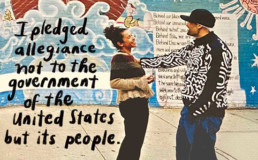
Let's stay in touch
Thank you for signing up to receive news about everything we’re creating at The Meteor—newsletters, podcasts, conversations and events. (We’ll launch officially in 2021.) Got this from a friend? Sign up for your own copy.
Listen now to our new podcast: UNDISTRACTED
WELCOME TO THE METEOR!
Thank you for being part of our community
If you’re getting this email, it’s because you signed up to hear more about The Meteor. And hello! We’re a group of creative people using the power of storytelling, journalism and art to advance gender and racial equity. Maybe you’ve seen some of our early work; if not, roam around on our site or our Instagram and enjoy. We’ll launch officially in 2021, and there’s lots more to come.
In the meantime, we’re five days out from the end of an election the world is watching. We’re ready for a new tomorrow, one built by the voices and the vision of women. With that in mind, we’re thrilled to share our newest project with you:
INTRODUCING: UNDISTRACTED
Listen to The Meteor’s new podcast with Brittany Packnett Cunningham—live today!
Hosted by educator, activist and TV commentator Brittany Packnett Cunningham, UNDISTRACTED takes on the most pressing issues of our time with a laser focus on the underrepresented angles of gender, race, ability and more. The goal? To create a more just world—one that works for all of us.

You probably already know Packnett Cunningham, but here’s a refresher: Described by President Barack Obama as a leader “whose voice is going to be making a difference for years to come,” she was a member of the White House Task Force on 21st Century Policing and the Ferguson Commission, and a co-host of “Pod Save the People” for the last three years.
Today’s launch episode features Cecile Richards, co-founder of Supermajority, who’s been working since the day after the last election to help drive women to the polls for this one. She talks to Packnett Cunningham about how that’s going, and you don’t want to miss their raw, real discussion.
Listen on Apple Podcasts, Spotify, Stitcher or wherever you get your podcasts.
Presented by
30 DAYS TILL TOMORROW
Take a break from your pre-election routine and dive into 30 days of inspiration about voting rights on our Instagram—including these two minutes of joy from poet Nikki Giovanni.
